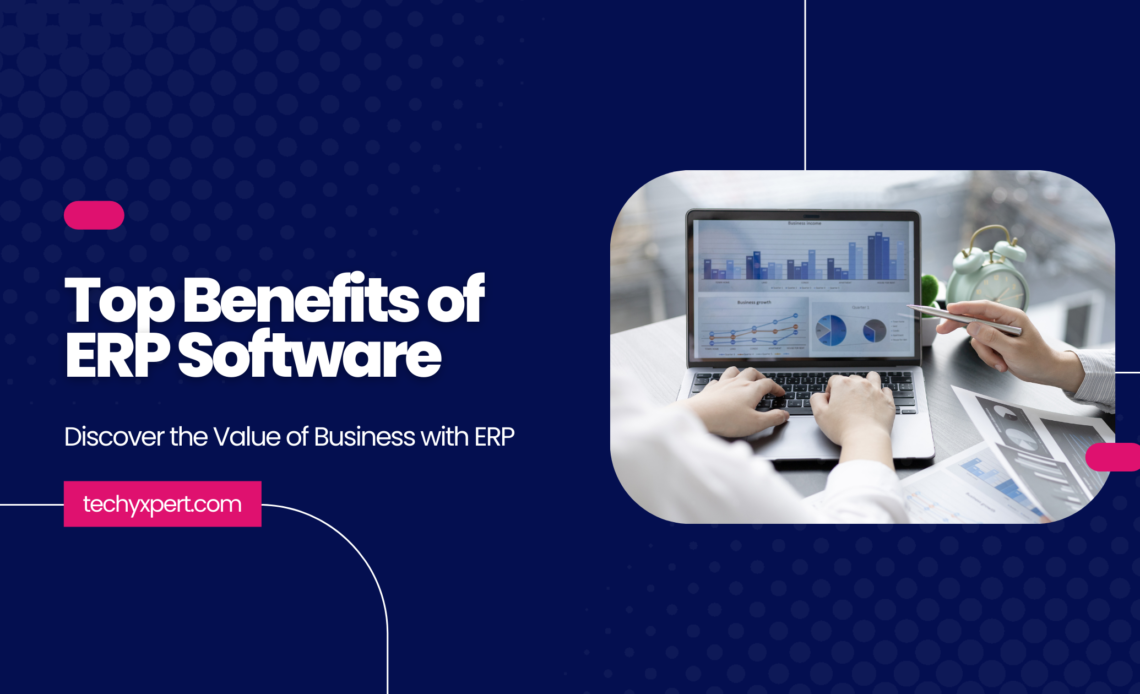
Enterprise Resource Planning (ERP) is business process management software that allows an organization to integrate applications to manage the business and automate numerous business processes, such as human resources, technology, and services. Larger organizations mainly use ERP software due to its high installation and maintenance costs. However, nowadays, many small businesses use it for data synchronization using ERP Software among several departments, making information available, making better decisions, and enhancing productivity. Thus SMEs are real users who were experiencing the top benefits of ERP Software systems.
ERP solutions enable companies to focus on what matters most to their success. Responding to client requests, drafting proposals, following up on ongoing projects, tracking invoices, conducting market research, performing complex financial calculations, and filing human resources claims is much easier and faster with a streamlined program to categorize and make available all of your business’s tools.
Modern and mainstream ERP software systems are updated regularly with ongoing customer support, guaranteeing that your company’s needs are addressed effectively. Because many ERP software systems come standard with integrated tools in one easy-to-use program, they may replace out-of-date software. Your company won’t require different software for each function or department if you adopt an ERP software system. On the other hand, ERP software systems consolidate many areas of a company into one program with a reasonably easy user interface. In contrast, firms had to subscribe to many service providers for varied software needs in the past. ERP software can be used in many businesses, including accounting and financial services and marketing and strategy planning.
The following are a few of the core benefits of using ERP software:
- Streamline the flow of information
- Increases productivity
- Reduce operating costs and maintain control
- Greater flexibility
- Enhance sales and long-term planning
- Enhancement of decision-making
Small businesses benefit from ERP Software because it integrates business processes and financial software in real-time, thereby streamlining business operations through an integrated flow of information. A company’s general ledger and other economic software are updated due to this feature. In this way, management has access to the necessary financial information whenever it is needed. From sales order entry to product pricing to shipping and delivery, warehouse management to production, purchasing, invoicing, and financials, it can cover the benefits of all the key processes.
All departments have access to the correct information on a single platform at the right time. In this way, it is unnecessary to contact employees in different departments and go through Excel sheets to collect disintegrated data. In addition, ERP software contains master data such as vendor and customer records, products and materials, routines and manufacturing procedures, price lists (BOMs), and other critical data. As a result, work processes are maintained consistently; time is saved and enhanced productivity.
As business transactions increase and spreadsheets are used more rigorously, this may result in a lack of data control and a collapsed state. The keying of data into a spreadsheet can also lead to errors, leaked confidential information, and unnecessary chaos. In small businesses, spreadsheets and simple accounting software are often favored because they are inexpensive and can accommodate limited transaction volumes.
As a result of complex business processes and higher transaction volumes, ERP software has become essential. Due to small businesses’ growth in employee numbers and revenues, a lack of appropriate integrated business software may negatively impact them. In terms of impact, you could have poor planning, inventory shortages, lost orders, and missed invoicing and shipments, which would imply an inability to maintain control. Small business owners can save money by streamlining data into a dedicated software application rather than paying for individual software and management software used by each department individually.
In small businesses, one of the advantages of cloud-based ERP software is its flexibility and agility to adapt to market demands and customer conditions. In addition, ERP software provides flexible data management capabilities to maintain flexibility in business. Tasks such as stock adjustments, changes in sales figures, cancellations of orders, etc., can be more easily handled in ERP software than by deleting data and keying information in spreadsheets.
The budget is released by spreadsheet control, but no confirmation of receipt is checked when the budget is released. This can lead to forgetfulness, resulting in a loss in sales. Dedicated ERP software can prevent this with automated authentication software. The Daily Report is also sent to ensure that necessary measures can be taken based on the proposals. Software providers/vendors can be long-term investments if they remain partners for the long term. The ERP software improves the organization’s customer service and profitability by ensuring consistency in business policies and processes.
Core business decisions require accurate data at the right time and the availability of necessary information. A small business with custom ERP software will be able to make timely decisions to assist in growth and survival when such data and information are readily available and updated. To meet the business needs, managers can use the available data to compare sales and revenue figures for different months, forecast future sales and financial requirements, and take effective decisions.
Conclusion
It costs much more to install ERP software than to maintain data using spreadsheets, but the advantages of ERP software make it a crucial tool for small businesses. By using ERP software, companies can better manage data, maintain confidentiality, make changes in an agile manner, increase labor productivity, boost sales and make effective decisions





Very informative article!